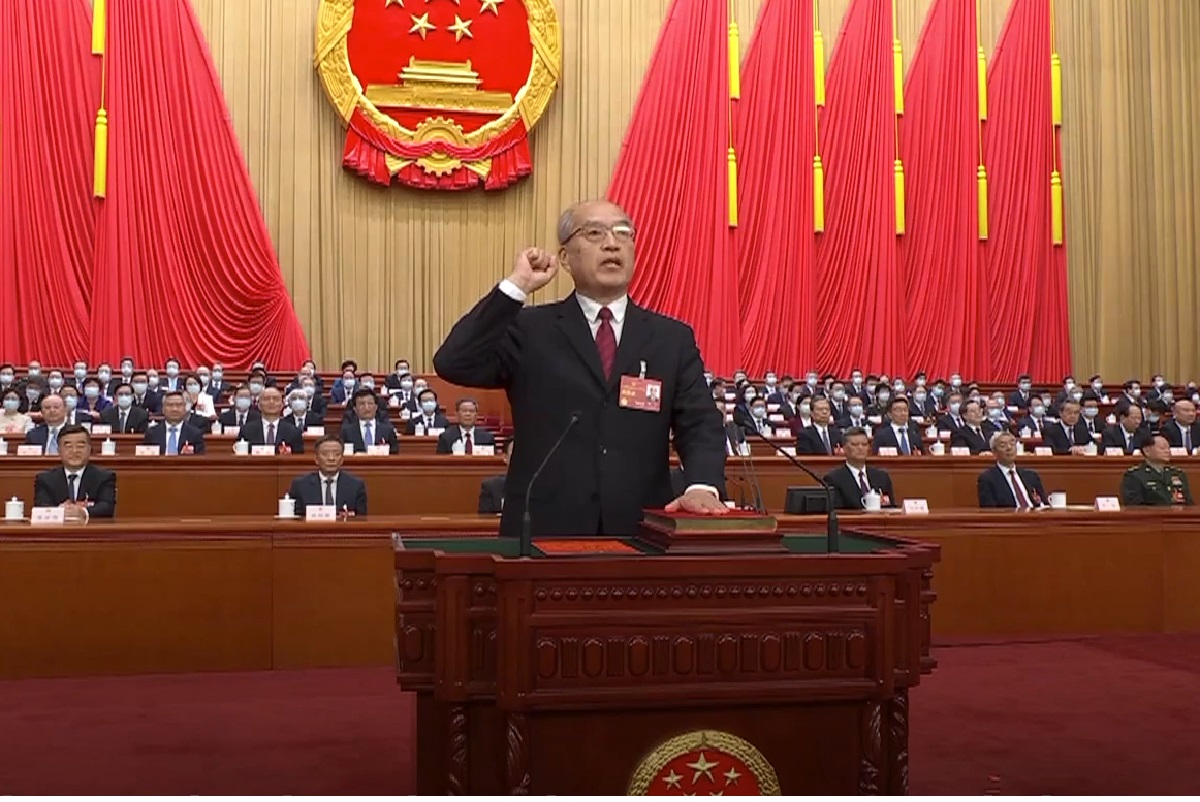Uncommon Knowledge
Newsweek is committed to challenging conventional wisdom and finding connections in the search for common ground.

China on Friday rolled out new punishments, including capital punishment, for what it considers to be “‘Taiwan independence’ diehards.”
China’s top court, public security ministries, justice ministry, and state prosecution body jointly issued an opinion listing broadly worded offenses.
Penalties include prison terms ranging from three years to life and, in “especially serious” cases, the death penalty, depending on the perceived severity of the offense.
Beijing claims Taiwan as its territory, though it has never governed there. Taiwan has its own government and legal system and is thus not subject to China’s laws.
“A very small number of ‘Taiwan independence’ diehards have wantonly carried out ‘Taiwan independence’ separatist activities, seriously endangering peace and stability in the Taiwan Strait and seriously harming the common interests of compatriots on both sides of the strait,” reads the document, which was shared by the state-run Xinhua News Agency.
The document lists various types of conduct deemed to promote the idea that Taiwan is not part of China, including:
Newsweek reached out to the Chinese Foreign Ministry and Taiwan’s de facto embassy in the United States for comment.
When asked about the likelihood that China would use the rules to target the thousands of Taiwanese living in China, Bonnie Glaser, managing director of the Indo-Pacific Program at the German Marshall Fund of the United States, told Newsweek that they are not the primary target.
“But it is possible that individuals could be arrested and charged based on this law. It may also have a chilling effect on foreigners who do research on Taiwan,” Glaser said.
Wang Hung-Jen, director of Taiwan’s Institute for National Policy Research, told the Taipei-based Central News Agency that Beijing’s goal was to instill “an immediate sense of fear” and that the political motivation for the new rules “outweighs the legal purpose.”
China has previously targeted Taiwanese officials, legislators, and media figures with sanctions.
Earlier this year, Beijing announced sanctions against Vice President Hsiao Bi-Khim, then the head of Taiwan’s embassy in the U.S., Foreign Minister Joseph Wu, National Security Council head Wellington Koo, and several legislators of President Lai Ching-te’s Democratic Progressive Party.
China previously prosecuted Taiwanese people who visited the country after running afoul of Beijing. One example is Lee Ming-che, a pro-democracy activist who was held incommunicado for six months before his trial. Lee was imprisoned for five years for “subversion of state power.”
China has intensified its pressure on the self-ruled island since last month’s inauguration of Lai, whose past independence-leaning statements have made him a reviled figure in Beijing.
China has threatened war if Taiwan declares official independence. Recent polling shows most Taiwanese favor maintaining the status quo rather than declaring independence or reunifying with China.
Newsweek is committed to challenging conventional wisdom and finding connections in the search for common ground.
Newsweek is committed to challenging conventional wisdom and finding connections in the search for common ground.